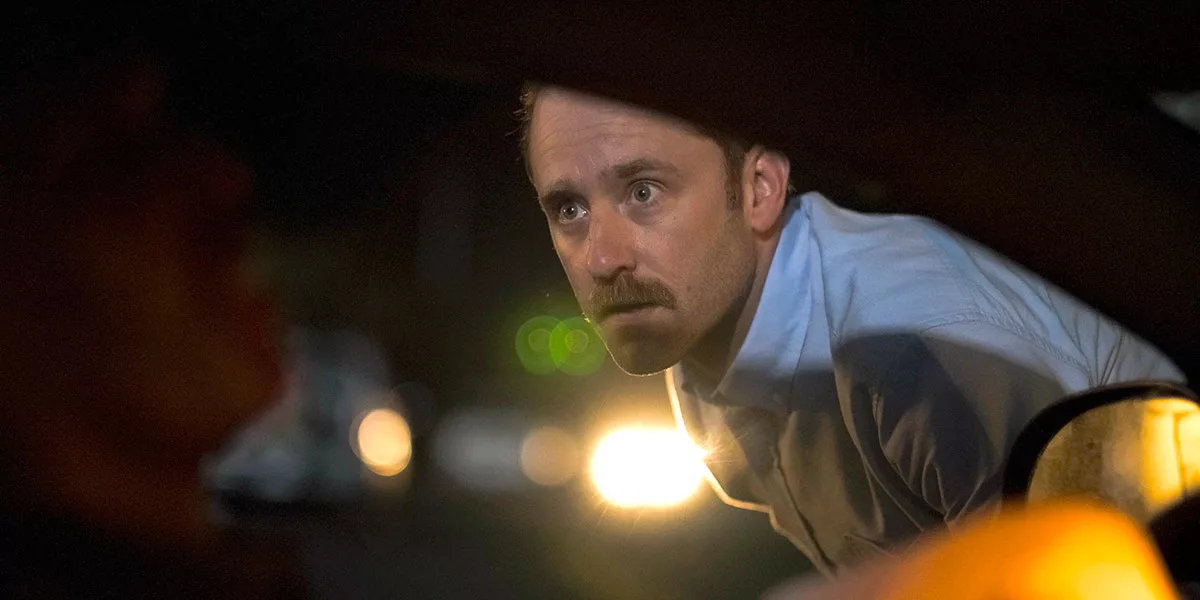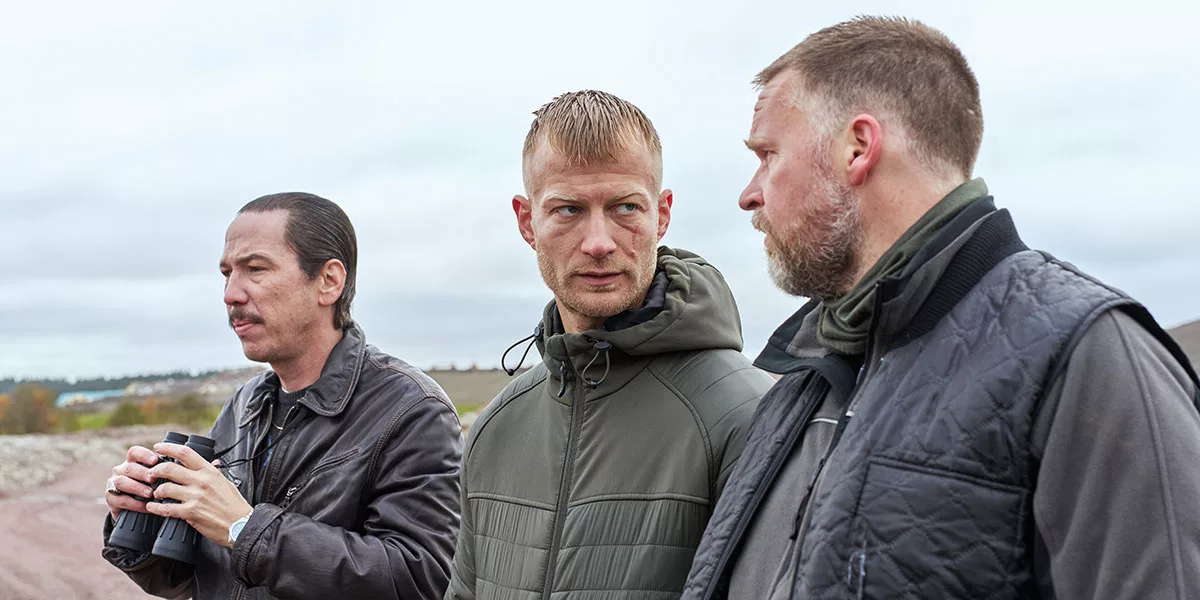TIFF is such a massive festival that it’s remarkably difficult even with a staff as large as ours (five people here with varying assignments) to even get to half of it. And the truth is that with major films like “Nutcrackers,” “The Life of Chuck,” “The Wild Robot,” and “We Live in Time” taking a lot of the red carpet, it can be easy for “smaller” films to be ignored. One film that will likely get lost in the rush of Torontonians and out-of-towners trying to get into a theater like The Princess of Wales already had a bit of a moment in Telluride, where Embeth Davidtz’s uniquely titled “Don’t Let’s Go to the Dogs Tonight” had its premiere. This is clearly a deeply personal project for Davidtz, who not only co-stars but makes her directorial debut, adapting a book on a subject with which she’s keenly familiar.
Davidtz, the talented star of “Schindler’s List” and “The Morning Show,” grew up in South Africa; that country’s divided background influenced how she adapted Alexandra Fuller’s memoir about her youth in Rhodesia in 1980 when an election shifted the balance of power in that country (now Zimbabwe) forever. Davidtz’s film adaptation of Fuller’s book attempts to chronicle the shifting racial and power dynamics in a country through the eyes of a child. Bobo (Lexi Venter) has been carefully trained to be wary of those around her, but she’s naturally close to two locals named Sarah (Zikhona Bali) and Jacob (Fumani N. Shilubana) who work for the Fuller family. While Sarah seems to be a reliable ally for Bobo, Jacob is aware of the danger on the horizon, and how it could divide all of them.
Davidtz herself plays Nicola Fuller, a ball of constant tension who sleeps with a gun by her side because she’s so certain that the country is about to explode into violence. Davidtz the director handles this aspect of her film well, giving the whole thing a natural simmering tension, like a calm before a storm. We’ve seen lots of films about political upheaval and rebellion, but those things don’t happen overnight. They’re preceded by days, weeks, months, and even years of minor conflicts before the major one. Davidtz wisely avoids several of the traps of this film, only occasionally succumbing to elements that feel more like a movie than reality. For the most part, there’s truth in the foundation of this film, truth that only this filmmaker could provide.

Truth is what’s lacking most from the frustrating “Sharp Corner,” another TIFF film starring Ben Foster as the best thing about it. This is becoming a pattern after 2023’s dismal “Finestkind” and 2021’s frustrating “The Survivor.” Foster is one of our most versatile actors, a performer who can convey dramatic inner monologue as well as anyone, but he’s constantly hampered by filmmakers who don’t quite know what to do with him. Jason Buxton’s film starts with a fascinating premise that Foster is certainly eager to chew on as a performer, but it doesn’t know what to do with the ideas that it raises. It’s a film with dark edges but a hollow center.
Buxton’s adaptation of the short story of the same name by Russell Wangersky opens with Foster’s Josh McCall moving into a new home with his wife Rachel (Cobie Smulders) and their child. It should be the start of a domestic dream, a great place to raise a young family, but it happens to be on a sharp corner with a sign too often blocked by foliage. The first night the couple is there, a car careens around the corner and smashes into the tree in front of their house, sending a tire through their window, and killing the driver. Josh becomes obsessed with his death trap of a house, convinced that if he knew CPR he could have saved that poor soul, and so he sets about trying to become the savior of this vehicular Bermuda Triangle. As Rachel insists they move, he starts to fracture further, certain that this is a role he’s meant to play.
Clearly, this is a rich idea for a drama as Josh’s relatively mundane life is sparked into a burning flame by literal carnage. However, its effect is shockingly flat given the heated ideas embedded in its narrative. Not everything needs to be Cronenbergian levels of violence a la “Crash,” but this story should get a little primal and bloody, digging into its ideas about the male savior complex in a way more daring than Buxton was willing to be. Foster is so good that he almost makes it worth seeing (as always), but it’s ultimately too dull.

There’s a similar draining effect after a solid set-up that impacts Frederik Louis Hviid’s “The Quiet Ones,” a thriller about the biggest heist in the history of Denmark. We get a solid intro to the characters and stakes, but then Hviid loses the tension through slack pacing and what feels like an hour of people running through dark rooms with a shaky camera chasing them. Some scenes and performances in “The Quiet Ones” are effective, but it’s ultimately too familiar and not satisfying enough to recommend.
Gustav Giese carries a strong screen presence as Kasper, a scarred boxer who has run out of options. When he’s approached by a group of career criminals to plan a massive heist, he reluctantly agrees to help plan the gig. However, he insists on not actually going into the cash-counting facilities on the big day. Of course, fate upends all of Kasper’s planning, leading viewers to wonder whether the elusive combatant can keep a cool head as everything gets hot around him.
A lot of the heat comes from an effective Reda Kateb as Slimani, the brutally violent leader of the heist who Hviid very clearly offsets against Kasper. Our protagonist takes jobs to keep his family together and minimizes all human costs; the abusive Slimani feels like the kind of guy who would sleep just fine at night if they had to murder every security guard to get what he wants. The pair have a counter a guard named Maria (Amanda Collin), an underdeveloped but interesting balance to the aggressive masculinity of the film on the whole.
“The Quiet Ones” is effective in bursts—there are no bad performances and Hviid has a confident eye—but it’s too long to maintain the heightened energy it needs for the entire runtime. It might play differently in a country where its subject broke criminal records, but it feels like a familiar tune in an international market of so many movies about bad guys planning one last job.

